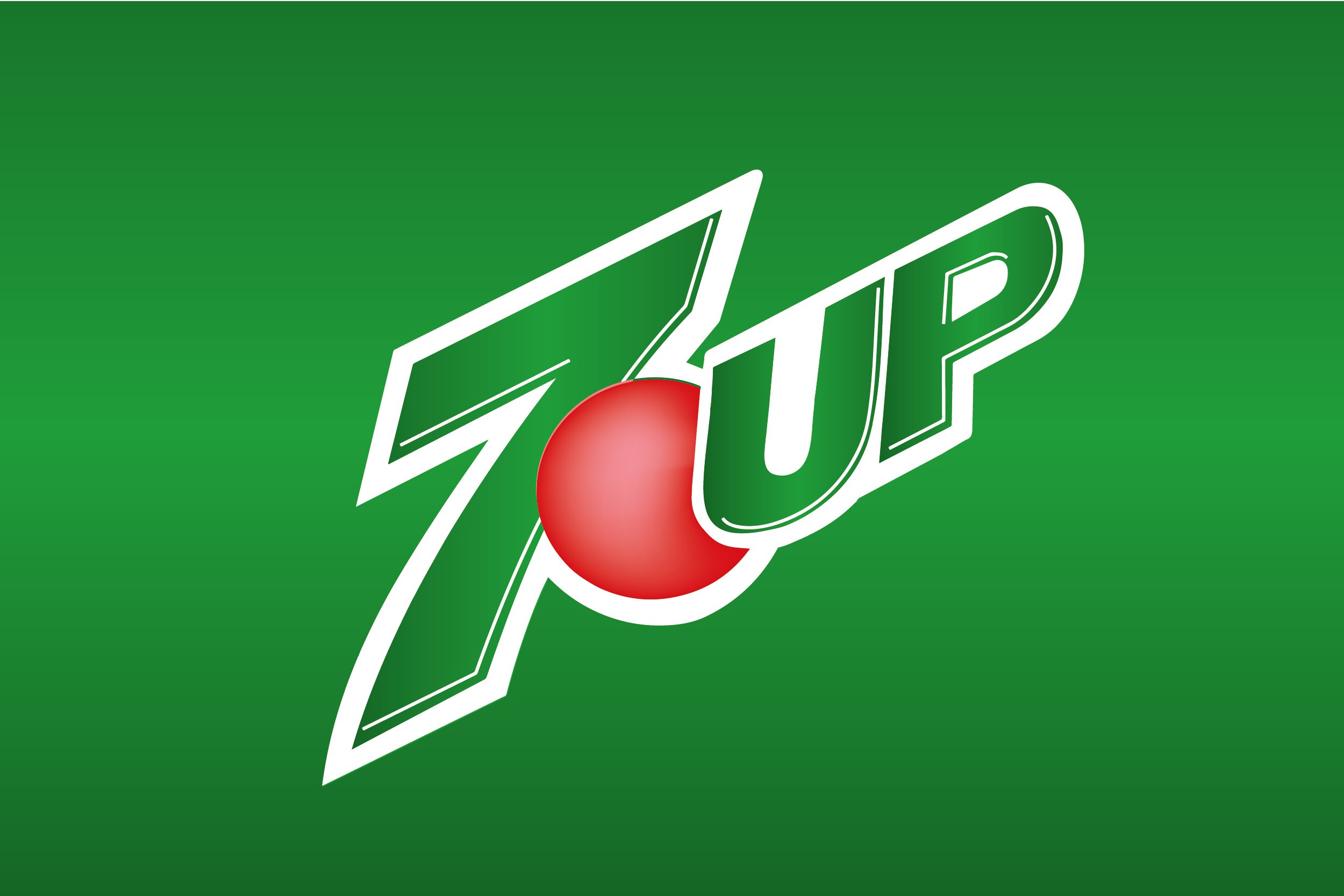Economy
$60m Buyout: Shareholders Want Forensic Audit of 7up

By Dipo Olowookere
Both the Securities and Exchange Commission (SEC) and the Nigerian Stock Exchange (NSE) have been urged to urgently to conduct a forensic audit of Nigeria’s 7Up Bottling Company.
This plea was made by Nigerian shareholders in the firm and it followed the planned buyout by Affelka, its parent company of 7Up.
This development is also coming at a time one of the leading indigenous oil firm in Nigeria, Oando Plc is facing a similar crisis, though the firm is preventing the regulator from conducting a forensic audit of its affair.
This issue allegedly led to the suspension of the regulatory chief, Mr Mounir Gwarzo, by the Minister of Finance, Mrs Kemi Adeosun.
The shareholders want the capital market regulators to unravel circumstances surrounding the deal, which they believe is not totally clean.
Speaking with Daily Sun on telephone, the shareholders argued that they were unconvinced that the recent takeover notification of the company was not fraudulent scheme as there was no reason to suggest the firm was doing badly in its sector.
Recall that Affelka, majority shareholder of Seven-Up Bottling Company, had last week offered to pay $60 million (N19.33 billion) to buy out minority shareholders in Nigerian operation. According to the proposal, the buyout is aimed at restructuring the struggling company.
Affelka is the privately held investment firm owned by Lebanese El-Khalil family and it is offering to pay N112.70 per share for the minority stake of 171.5 million shares. This is an 18 percent premium to last Thursday’s share price of N95.50k.
“As of now, we have received an offer from the majority shareholder of the company. It’s a financial restructuring,” said Sunil Sawhney, Vice Chairman of 7Up Bottling Company.
He said the company has been making losses for some time and that the deal was aimed at restructuring the bottler, which distributes PepsiCo’s 7Up, Pepsi and Mirinda-branded drinks.
But minority shareholders in Nigeria rejected Sawhney’s explanation, pointing out that they seriously smelled a rat, and argued that the notification was out to short-change local investors.
According to Mr Gbadebo Olatokunbo, a shareholder activist, the 57 years old company is making good sales and profit with very good price at the NSE with the good result and return on investment in 2014.
“But suddenly, by the first half of 2015, something known only to its few foreign team within the company happened and the company started reporting losses.
“The drift continued and the same powers behind the scenes are now ready to buyout local investors at their price,” Mr Olatokunbo wondered.
He asked, “Why the renewed interest of the majority shareholders in a suddenly sick company? Why are they now interested in the takeover when the company wasn’t growing? How are we sure they weren’t the brains behind the unexpected bad results?”
Mr Olatokunbo stated that, “We are of very strong view that the proposed injection of $60 million is part of our profit on investments in 7Up, which was denied us and now about to be presented as a bailout-fund for a very solid 7Up Company, which we view with serious suspicion. It is a slap on our collective business senses and we hereby ask for a forensic audit of our company, 7Up, from 2014.”
In his own reaction, President of Nigeria Shareholders Solidarity Association (NSSA), Mr Timothy Adesiyan, said the news of the buyout offer was very disheartening.
“We thank God for the life of the former President, Olusegun Obasanjo, who made it possible for Nigerians to be part owners of these multinationals because it was during his tenure that a law was made, which made it possible for Nigerian shareholders to be part owners of these companies.
“But what is happening now is very disheartening because the gimmick is to shut out the local investors.
“The Securities and Exchange Commission (SEC) and Nigerian Stock Exchange (NSE) are not helping matters because most of the people there now don’t know what it took the former president to make Nigerians part owners of these multinationals,” he lamented.
He appealed to the Federal Government to look into the matter to stop foreigners from short-changing local investors because they are making money here.
For his part, Mr Boniface Okezie, National Coordinator, Progressive Shareholders Association of Nigeria (PSAN), blamed SEC and NSE for this issue.
According to him, “we saw it coming. Since SEC and NSE approved the delisting of NBC, we knew that others will follow suit. What are they restructuring?”
He explained that all boils down to short-changing local shareholders, adding that they are just after the buyout to delist from NSE and then, escape from corporate governance code because they are no longer listed.
Mr Okezie, however, urged the capital market regulators to subject 7Up to rigorous test to confirm some of its claims and also not to renege on its regulatory role of protecting minority shareholders.
Economy
Female-led Businesses Have 7.2% Higher Activity Rate Than Male Counterparts—Eniolorunda

By Modupe Gbadeyanka
The chief executive of Moniepoint Incorporated, Mr Tosin Eniolorunda, has said it’s more profitable to serve women than their male counterparts.
Speaking at the second International Financial Inclusion Conference 2024 organized by the Central Bank of Nigeria (CBN) and other critical stakeholders, he said women entrepreneurs have proven to be diligent and enhance profitability.
He disclosed that based on data harvested from the Moniepoint platform, “women-owned businesses are more likely to stay active and show higher engagement rates in financial transactions.”
According to him, in cases where financial support has been extended—through investments, KYC compliance, or the provision of tools like point-of-sale devices—female-led businesses have a 7.2 per cent higher activity rate than their male counterparts while looking at the gender relations with credit products, “women-owned businesses have an 87.5 per cent lower loan non-performance rate (NPL) than male-owned enterprises.”
He submitted at the event themed Inclusive Growth: Harnessing Financial Inclusion for Economic Development that for financial inclusion to be sustainable, especially for women, it must no longer be treated as a buzzword, charitable social activity or a checklist to be marked.
Mr Eniolorunda noted that financial service providers play a vital role in supporting gender-inclusive finance and that by collecting and analysing data on gender trends in small business performance, they can craft better policies, targeted products, and support services that encourage more women entrepreneurs.
Echoing similar sentiments, his counterpart at the Credit Registry, Ms Jameelah Sharrieff-Ayedun, said, “90 per cent of women’s income that they receive goes back to the communities and their families as such when women have access to credit, the community is enhanced, families are better off which is why it’s important that they can access this funding.”
In her summation, the Deputy Governor of the CBN for Operations, Ms Emem Usoro acknowledged some of the structural challenges that might require time and resources to be addressed including cultural practices and less systemic ones such as distance to financial services providers that stifle the participation of women-owned businesses, while signposting the power of data to catalyze inclusive growth and its viability for economic planning.
Economy
Stanbic IBTC Asset Management Moves to Protect Mutual Fund Holders

By Aduragbemi Omiyale
A significant step has been taken by Stanbic IBTC Asset Management to protect mutual fund holders from scams.
This is being implemented through a campaign launched by the organisation to raise awareness of scam attempts that may mislead customers into using incorrect account details, highlighting the tactics used by scammers to keep customers informed and vigilant.
Stanbic IBTC Asset Management intends to use this means to build trust and reassurance, reinforcing its dedication to the financial safety of its clients.
This move, taken in response to an alarming rise in scam attempts targeting mutual fund holders, will educate customers on protecting their investments and understanding the correct procedures for mutual fund subscriptions.
The firm has advised customers to verify the payment accounts for any Stanbic IBTC mutual fund investments, encouraging due diligence in confirming the legitimacy of financial communications.
The chief executive of Stanbic IBTC Asset Management, Ms Busola Jejelowo, said, “At Stanbic IBTC, our top priority is our customers’ financial safety, and we are fully committed to ensuring that our clients have the security they need while managing their investments.
“This campaign is designed to protect our customers and empower them with the knowledge necessary to recognise and verify the authenticity of any communications they receive.
“By doing so, we aim to foster a sense of confidence and security among our clients regarding their financial decisions.”
It was gathered that recently, enquiries about the authenticity of mutual fund subscription messages have surged. Many of these messages contain differing and potentially incorrect account numbers, leading to confusion and concern among investors.
The company has made it clear that customers should not hesitate to contact the support team directly with any concerns, questions, or suspicions regarding communications or transactions.
Economy
NASD Index Records 0.67% Appreciation

By Adedapo Adesanya
The NASD Over-the-Counter (OTC) recorded a 0.67 per cent appreciation on Thursday, November 28, with the portfolios of investors on the platform rising by N7.09 billion to N1.061 trillion from the N1.053 trillion it closed in the preceding session and the NASD Unlisted Security Index (NSI) growing by 20.22 points to wrap the session at 3,026.60 points compared with 3,006.38 points recorded on Wednesday.
This happened after the unlisted securities market finished the trading session with three price gainers and two price losers.
Afriland Properties Plc gained N1.58 to end at N17.39 per unit compared with the midweek’s closing price of N15.81 per unit, as Acorn Petroleum Plc improved its value by 14 Kobo to close at N1.69 per share, in contrast to the previous day’s N1.55 per share, and Central Securities Clearing System (CSCS) Plc went up by N1 to sell for N23.00 per unit compared with the preceding session’s N22.00 per unit.
On the flip side, First Trust Microfinance Bank Plc lost 4 Kobo to finish at 32 Kobo per share versus Wednesday’s closing price of 36 Kobo per share and Geo-Fluids Plc slumped by 3 Kobo to sell at N3.90 per unit compared to N3.93 per unit it was sold a day earlier.
There was a 191.9 per cent rise in the volume of securities traded in the session as investors exchanged 2.9 million units compared with the previous trading day’s 1.0 million units.
Equally, there was a 283.9 per cent surge in the value of shares traded yesterday to N7.9 million from the N2.1 million recorded in the previous day, and the number of deals increased by 300 per cent to 12 deals from the three deals executed in the preceding day.
At the close of transactions, Geo-Fluids Plc was the most active stock by volume (year-to-date) with 1.7 billion units valued at N3.9 billion, trailed by Okitipupa Plc with 752.2 million units sold for N7.8 billion, and Afriland Properties Plc with 297.3 million units worth N5.3 million.
Aradel Holdings Plc remained the most active stock by value (year-to-date) with 108.7 million units worth N89.2 billion, followed by Okitipupa Plc with 752.2 million units valued at N7.8 billion, and Afriland Properties Plc with 297.3 million units sold for N5.3 billion.
-

 Feature/OPED5 years ago
Feature/OPED5 years agoDavos was Different this year
-
Travel/Tourism8 years ago
Lagos Seals Western Lodge Hotel In Ikorodu
-

 Showbiz2 years ago
Showbiz2 years agoEstranged Lover Releases Videos of Empress Njamah Bathing
-

 Banking6 years ago
Banking6 years agoSort Codes of GTBank Branches in Nigeria
-

 Economy1 year ago
Economy1 year agoSubsidy Removal: CNG at N130 Per Litre Cheaper Than Petrol—IPMAN
-

 Banking2 years ago
Banking2 years agoFirst Bank Announces Planned Downtime
-

 Sports2 years ago
Sports2 years agoHighest Paid Nigerian Footballer – How Much Do Nigerian Footballers Earn
-

 Technology4 years ago
Technology4 years agoHow To Link Your MTN, Airtel, Glo, 9mobile Lines to NIN















